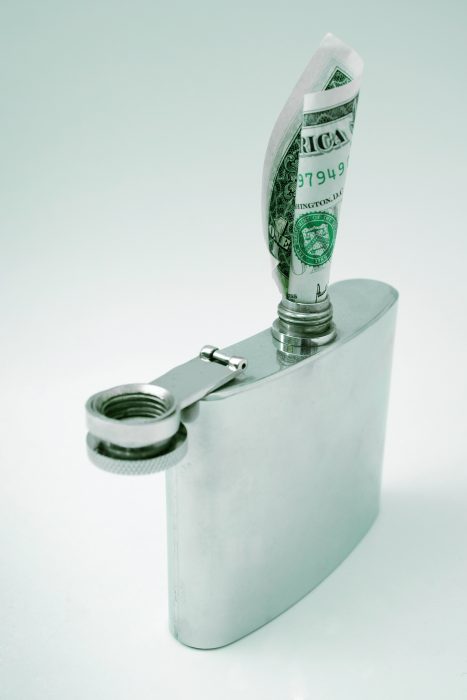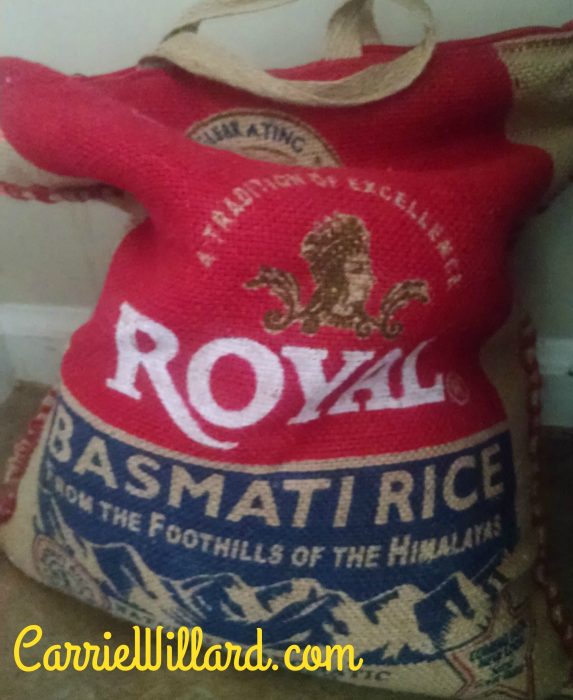The other day as I was melting down my lipstick, I thought, “If someone saw me doing this, they might assume I’m very poor and can’t afford a new lipstick.”
I do a lot of black-belt tightwad stuff like that. But I’m not poor. I’m quite privileged among the inhabitants of the world, in fact, something I’m very aware of and try to stay grateful for.
The other day hubby mentioned an article on Dave Ramsey’s Facebook page about a couple who were able to shave a ton of money off their grocery spending. The comments on that post were written mostly by angry people who said this couple “saved” more than their entire monthly budget for groceries.
I thought some of the comments were valid, because heralding someone as an example of sound money management who were grossly overspending isn’t exactly inspiring. It’s akin to a store yelling about an item being 75% off (an already overpriced, marked-up item)! That’s not exactly a deal.
However, the energy of those folks would be better served in figuring out ways to increase their income, instead of spewing hate on forums (and with the internet and today’s “on demand” economy, anyone can have a side hustle). Anger is a wonderful motivator and produces great amounts of energy. (I wonder if any of those angry people have considered making drastic lifestyle changes temporarily in order to improve their situation? But I digress.)
I pointed out to my husband that the simple fact of us being able to put aside $3,000 a month (and that’s after saving for taxes, and with an emergency fund in place), puts us in the 97% percentile, and we should be deeply grateful for that.
And here is where I come to the part about why doing “poor people” stuff can create margin.
I just finished reading The Tightwad Gazette II by Amy Dacyczyn. The last essay is about this topic.
It’s called Wealth, Poverty and Frugality.
She begins by pointing out that as a child, she noticed that many people around her who lived in big houses and drove older cars wore used clothing, but people who lived in small houses had new cars and new clothing. In other words, people who put their surplus money into short-term extravagances rarely build the same wealth as those who put their money in things with lasting value.
A few choice quotes:
We still think that frugality has to do with being “poor,” and that wealth and frugality are mutually exclusive terms. Overcoming this misconception is crucial to achieving a successful frugal life.
… income level has very little to do with whether a person chooses frugality.
And then she mentions the work of Thomas J. Stanley, whose book, The Millionaire Next Door, drew upon 20 years of research and posited that wealthy people don’t often look that way.
Like Sam Walton, they drive older model used cars, wear jeans and cowboy boots and drink beer, not champagne, and have a stay-at-home spouse. They’re 80% first generation rich (blowing holes in the idea so many have that rich people inherited their money) and usually owned their own business – something like a plumbing outfit or another equally un-sexy line of work.
Because we think frugality has to do with being poor, we see it as an admission of economic failure.
… many people are ashamed of being frugal… to be successful and happy in the frugal lifestyle, we have to be proud and confident in our choices. We must have a clear view of our goals…If we do this, we’ll feel no shame about being frugal.
Later that day, while doing laundry and folding towels, I thought back to a time in my life when I felt unhappy about my old towels. I longed to spend money on brand-new towels, all in matching colors. I thought that would make me happy.
But I’m a practical person. I understand that husbands and children do not understand the concept of using the old, stained towels for cleaning up nasty messes off the floor, rather they grab the nearest towel. As a result, many of my towels are stained with coffee, fingernail polish, finger paints, mud and what have you.
I never got the new towels, but I didn’t need to. I’m happy with the old ones.
Another point Amy D makes:
… a person with a low income and a wealthy attitude would live as modestly as possible to create a maximum surplus to save and invest. Poor people often remain poor because they spend any surplus income on short-term gratification. Therefore, buying Twinkies is more likely to be the behavior of a person with a poor mentality than of a person with a wealthy attitude.
If you have no margin in your budget, you can’t take advantage of deals, you can’t bulk buy toilet paper in 24-packs when it goes on sale, you can’t buy that huge box of diapers. The end result is that you pay more for everything. (To say nothing of the fact that scarcity produces a temporary drop in IQ. This effect can be replicated even among well-educated, high income earners.)
It may not be possible for you to “save” $600 a month on groceries (I wouldn’t be able to do that!), but if you could save $60 a month, that’s $720 in a year’s time. That’s an emergency fund. Figuring out how to earn an extra $50 a month could mean being able to buy that large box of diapers or big bag of rice.
Temporary tightwaddery can create escape velocity to change your finances permanently.[Tweet “Temporary tightwaddery can create escape velocity that will change your finances permanently.”]
This is why I’m willing to do “poor people” stuff. Not because I have to, but because it creates margin.
And with a house full of kids, I would rather not have to worry about perfect, pretty fluffy towels.



“Poor people” stuff. This post reeks of snobbery.
@Motherof2: Oh goodness. Not my aim at all. In fact, the point of this post was to point out that there is a judgment involved with frugal activities that isn’t necessary. I am not a snob at all, and since you don’t know me, that’s not a correct assumption.
The definition of snob:
“a person with an exaggerated respect for high social position or wealth who seeks to associate with social superiors and dislikes people or activities regarded as lower-class.”
By definition, this post isn’t snobbery because it *promotes* activities regarded by many as lower-class.
Read the same article and I fully agree with you!! I live ‘poor’ but am rich in many aspects of life! And, very happy!
Great article! Sharing!
Wow Carrie I love this post! It’s speaking to me at a time when I’m in a position to do something about my poor spending mentality if I really listen and choose to. Years and years and years ago I read the Tightwad Gazette and while I did learn things it felt REALLY, REALLY tightwad to me (like I remember she said she washes out plastic bags that had meat in them and to me that did not feel worth the possible bacteria food poisoning that could happen if you mistakenly didn’t wash or wash enough). Anyway that’s the not point, the point is I am guilty of spending money for instant gratification and I can’t say I save AT ALL and that’s not good. I’d be happy to start with being able to save $1000 a month after putting money aside for taxes and emergency fund and work my way up from there. You’ve got my attention with this post and I’ll definitely be back to read more!
@AngelaWills: LOL true. I won’t be saving dryer lint anytime soon either. 😉
I love the books though because they inspire me to think outside the box. Plus, the indexes are really great. You can look up anything and there’s going to be a frugal tip for it. Yesterday my husband and 15-year-old were grilling out, and commented that the charcoal added $4 to the cost of the meal. I immediately remembered that there was a frugal tip in one of the books about how to use less charcoal. LOL